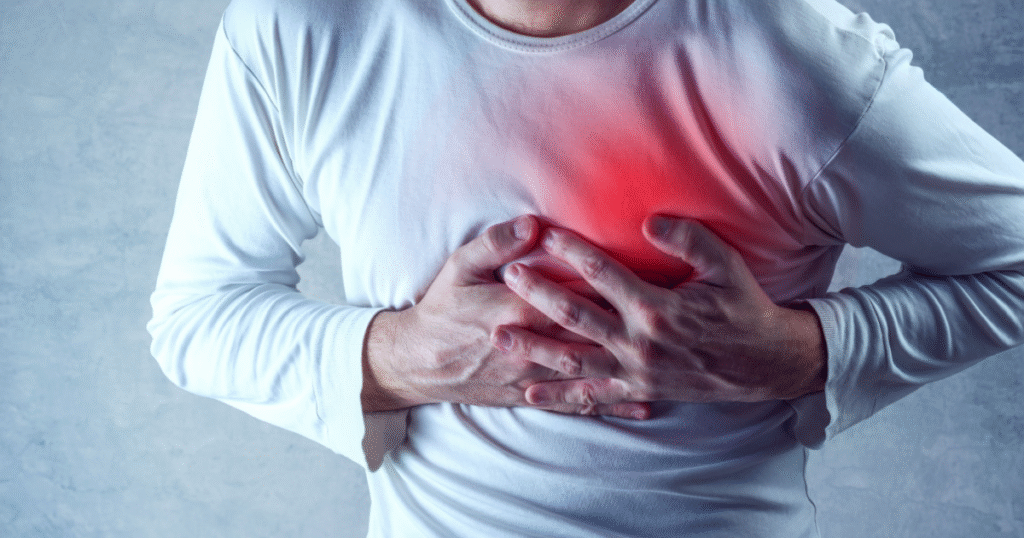Cancer is a serious illness impacting millions globally. Sadly, many individuals overlook the early warning signs until the disease has progressed. Detecting cancer early is crucial for successful treatment, so understanding the symptoms that may signal cancer is vital.
Cancer symptoms can be subtle in the beginning. Recognizing and paying attention to them might be lifesaving. Below are 20 common cancer warning signs that many people tend to overlook until it’s too late:
Significant weight loss without cause

Unintentional weight loss may indicate cancer. This can result from a decreased appetite caused by nausea or pain, but researchers also think certain chemicals released by cancer into the bloodstream might play a role. This symptom is particularly common in blood-related cancers such as leukemia and lymphoma.
Extreme tiredness

Constant tiredness, even after a full night’s rest, may be a warning sign of cancer. Fatigue is among the most frequent cancer symptoms and can impact individuals of any age. Often, it’s linked to other conditions such as anemia or depression.
Continuous cough

A cough lasting longer than two weeks may signal lung cancer. Such a persistent cough can also point to pneumonia, bronchitis, or other lung conditions. If you notice blood in your cough, it’s important to contact your healthcare provider right away.
Trouble catching your breath

Difficulty breathing, also known as dyspnea, may indicate lung cancer or other forms of cancer. If you find yourself taking deep breaths yet still feeling breathless, or notice that your breathing feels strained, it’s important to consult your doctor promptly.
Persistent Chest Pain: A Possible Cancer Warning Sign

Chest pain may indicate lung cancer or other types of cancer. It’s important to consult your doctor or visit the emergency room if you experience chest pain, as it could also signal a heart attack that needs urgent medical care.
Recognizing Abdominal Pain Linked to Cancer

Abdominal pain may indicate ovarian, pancreatic, liver, or other forms of cancer. It’s important to consult your healthcare provider if you experience persistent abdominal discomfort. Additionally, this pain could signal conditions like intestinal blockage or gallstones, which may need urgent medical care.
Disruptions in Bowel Regularity
Alterations in bowel movements, including diarrhea or constipation, may indicate colon cancer. Consult your healthcare provider if you notice persistent changes in your bowel habits.
Blood in Urine or Stool: A Warning Sign

Blood in your urine or stool may indicate bladder, kidney, or colon cancer. It’s important to consult your healthcare provider if you notice blood in these areas. Additionally, changes in urination habits—such as needing to urinate more frequently or having trouble starting or stopping urination—could also signal bladder cancer. If you experience any of these symptoms, seek medical advice promptly.
Experiencing Trouble Swallowing
Trouble swallowing may indicate throat or esophageal cancer. It’s important to consult your healthcare provider if you experience this symptom. However, difficulty swallowing can also result from less severe issues like acid reflux or GERD.
Voice Strain or Roughness

Hoarseness may indicate throat or laryngeal cancer, so it’s important to consult your healthcare provider if you experience it. However, hoarseness can also result from less serious issues like sinusitis or bronchitis.
Alterations in skin appearance
Alterations in the skin—such as darkening or yellowing—may be a warning sign of skin cancer. It’s important to consult your healthcare provider if you notice any changes in the color or appearance of skin patches. These changes can also be linked to less serious conditions like psoriasis or eczema.
Persistent wounds

Sores that fail to heal may be an indication of skin cancer or other forms of cancer. It’s important to see your healthcare provider if you have sores that don’t heal or that bleed. Such sores can also be associated with less serious conditions, like shingles (herpes zoster) or chickenpox.
Tender or enlarged glands
Enlarged lymph nodes may be a sign of lymphoma or other forms of cancer. It’s important to consult your healthcare provider if you notice swollen lymph nodes. They can also be a symptom of an infection or a less serious condition, such as mononucleosis.
Migraine or tension pain

Persistent or worsening headaches may indicate brain cancer. You should see your healthcare provider if your headaches do not improve or get worse. However, headaches can also be caused by less serious conditions like stress, sinus infections, or tension headaches.
Variations in vision clarity

Changes in vision may indicate eye cancer. It’s important to see your healthcare provider if your vision changes persist or worsen. However, vision changes can also be caused by less serious conditions, such as a detached retina or cataracts.
Discomfort in the bones

Bone pain may indicate bone cancer or cancers that have spread to the bones. It’s important to consult your healthcare provider if the pain persists or worsens. Bone pain can also be caused by less serious conditions like arthritis or osteoporosis.
Joint discomfort

Joint pain may be a sign of bone cancer or cancers that have spread to the bones. It’s important to see your healthcare provider if the pain persists or worsens. Joint pain can also be caused by less serious conditions like arthritis or osteoporosis.
Gastrointestinal upset
Nausea and vomiting may indicate cancer, particularly when combined with other symptoms. Contact your healthcare provider if nausea or vomiting lasts longer than a day. If these symptoms occur alongside other signs of bone cancer—such as weight loss, back or chest pain, or changes in bowel movements—seek medical attention immediately.
Elevated body temperature

A fever lasting several days may be a sign of cancer. Contact your healthcare provider if your fever continues for more than a few days. If you experience other symptoms of cancer, such as weight loss, back or chest pain, or changes in bowel movements, seek medical care promptly.
Your Role in Preventing Cancer
Besides knowing the signs and symptoms of cancer, you can take several other actions to lower your risk of developing the disease. These include:
- Eating a balanced diet rich in fruits and vegetables
- Staying physically active with regular exercise
- Avoiding tobacco use
- Limiting how much alcohol you drink
- Protecting your skin from sun exposure
- Attending regular cancer screening appointments
Disclaimer: This information is provided for general purposes only and is not a replacement for professional medical advice, diagnosis, or treatment. Always consult your doctor or a qualified healthcare professional if you have any questions about your health or medications. Do not ignore or postpone professional medical advice based on what you have read here.

